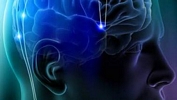Over the years there have been many inventions which have made our lives easier. Considering these inventions, perhaps none is as overlooked as anesthesia. Anesthesia is a catchall term for substances meant to block sensation. They are used in most cases to put patients to sleep for surgeries and other painful procedures.
Many types of anesthesia render a person unconscious, but some simply block all sensation from a certain area, paralyze a section of the body, or make reflexes ineffective. The most important attribute of an anesthesia is that it can be completely reversed. Humans have been using various methods to block pain and awareness for thousands of years.
Local and General Anesthesia
When attempting to recognize the importance of anesthesia, it becomes necessary to identify its two main delineations: general and local. General anesthesia is arguably the more remarkable of the two. It is a complete loss in consciousness that makes modern surgery possible. It was the brass ring of medical technology in the late 18th century that gave way to significant breakthroughs in surgical procedures.
Local anesthesia is not limited to the eradication of pain, but can be boiled down to that point. This kind of medicine has been available to humankind since they first become aware of the benefits of plants. It has been greatly improved in the last 200 years as well.
Anesthesia in Ancient Times
Accounts from prehistory claim that anesthesia was first used over 7000 years ago. At this time, ancient humans collected herbs and other plants that could be used as sedatives for their companions. There is very little information on what was used or which conditions were treated. Some evidence points to opium from poppies being the first widely used anesthesia. In addition, cannabis smoke was also used in India and China for its therapeutic advantages. The coca leaf and alcohol were also commonly used by medicine men to bring relief.
Since many ancient remedies were natural substances that are today processed into powerful narcotics, overdose was rampant. Unlike modern anesthesia, most were administered through a poultice placed in the wound. For this reason, the treatments ranged from ineffective to fatal.
Hypnotism, Acupuncture, and Other Methods
The use of non-chemical anesthesia is often scoffed at in modern medicine, but ancients (and beyond) were known to try to induce numbness and sleep in patients through hypnosis, acupuncture, extreme cold, near asphyxiation, and scent therapy. Many of these techniques were developed in ancient China, where ancient medical techniques are still studied today. The use of hypnosis and acupuncture for anesthesia is still quite controversial, but they are generally accepted as therapy techniques.
Leaping Forward: Breakthroughs in the 18th and 19th Centuries
Although some strides were made with the perfection of herbal mixtures as time rolled on, the 18th century brought tremendous new research into the field. Before this time, surgery, however necessary, was a tricky prospect. It was not until the French Revolution that methods for synthesizing and storing gasses became common.
Nitrous oxide or laughing gas was discovered in 1775 and encouraged further experimentation into inhalants by chemist Humphry Davy. It would not be until the 1830s that chloroform was discovered. It become a wildly popular anesthetic for use during childbirth, but was soon abandoned for this purpose, because it could be fatally toxic. Ether had been around for a few hundred years, but it was not used for surgery until 1842. Dr. Crawford Williamson Long put a patient to sleep and removed a tumor for his neck. American poet Oliver Wendell Holmes Sr. coined the term anesthesia during this era in a letter to one of its early adopters.
Modern Anesthesiology
After the initial successes and failures of experiments with general anesthesia, the support for further research exploded. The practice gradually expanded and improved, and it is still evolving today. Though there are still problems with the practice of anesthesia, it is miles away from ancient practices. Sometimes it is hard to recall that only a few hundred years ago, it was doubtful that pain could be eradicated for any patient undergoing surgery. Today, elective surgeries have become popular.
However, the high level of training needed for an anesthesiologist reflects the complicated nature of this science. Throughout its illustrious history, anesthesiology has expanded the way the human race thinks about pain and consciousness. Without the efforts of hundreds of generations, there would be no routine surgery today. Thanks to their work, modern humans can manage pain and extend their lives.
It has been a relatively short time since the first effective anesthesia was discovered. It is certain that many exciting advancements still lie ahead.



